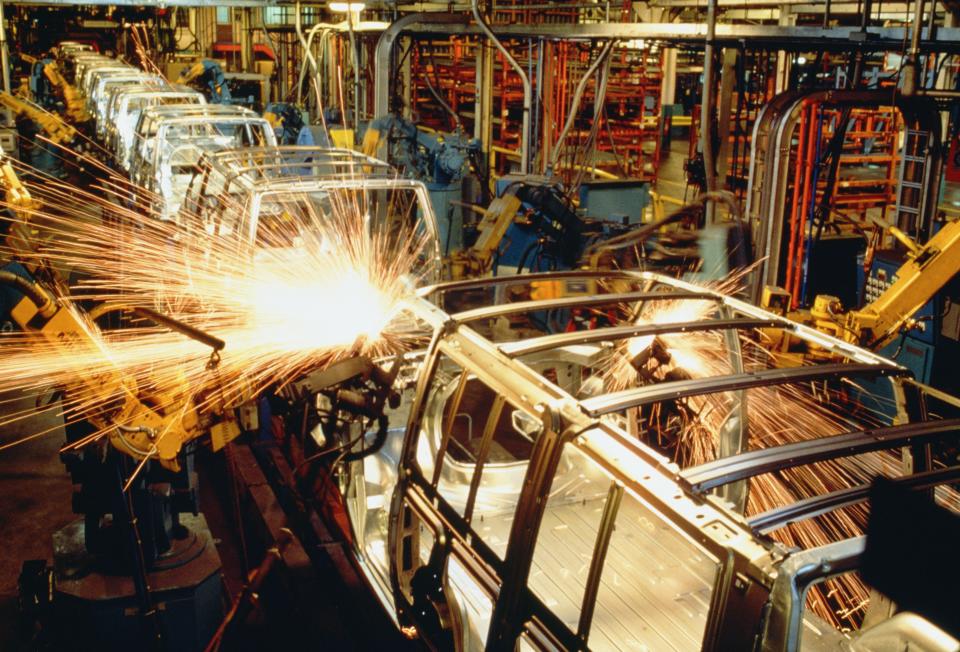‘There are two major links the trade war has to the economy': economist
The U.S.-China trade war continues to weigh heavily on equities and the economy as a whole. The September jobs report, published Friday, is further proof the manufacturing sector is getting hit hard – the sector lost 2,000 jobs in the month – and a sign that trade disputes are weighing on hiring and the economy overall.
The September unemployment rate dropped to 3.5%, the lowest since December 1969. But nonfarm payrolls climbed 136,000, below forecasts of 145,000.
There are “two major links that the trade war has to the economy,” Michelle Meyer, Bank of America’s chief U.S. economist, told Yahoo Finance’s “The First Trade.” “The first is the direct one, which [is] it increases the cost of production. It creates frictions. And that's showing up and has been showing up in the manufacturing side of the economy. Look at the ISM surveys, look at manufacturing production, look at manufacturing jobs. They're all contracting.”
“The second factor would be a confidence channel,” Meyer said.”The trade war is creating quite a lot of uncertainty and has led businesses to just wait.”
This week’s manufacturing numbers all point to a contracting manufacturing economy but not necessarily a global recession. The Institute for Supply Management (ISM) said manufacturing dropped to 47.8% in September, the lowest level since June 2009.
Additionally, the ISM's non-manufacturing index missed all estimates for September, falling to 52.6, the lowest level in three years.

When President Trump campaigned, he vowed to bring manufacturing jobs back to the U.S., but the sector has continued to contract, and workers worry about getting on the unemployment lines.
“They [businesses] see weaker global growth. And instead of making that big-ticket investment, they're going to hold back and buy some time,” said Meyer. “And that creates an environment where if businesses aren't investing as much in capital, maybe not as much in labor, as we're now starting to see with some slowdown in job creation, the domestic economy, the U.S. consumer, can start to notice.”
Several economists have told Yahoo Finance that as long as the consumer stays strong, any recession that comes will likely not last for long.
“That's the critical risk – is whether or not the weakness from manufacturing to business investment starts to show up more broadly, in the consumer and the services side of the economy,” said Meyer.
Tracey Marx Bernstein is a senior producer at Yahoo Finance.
Read more:
Jobs report: Economy adds 136,000 payrolls in September, unemployment rate falls to 3.5%
Solid jobs report gives ‘license’ to Powell to pause rate cuts: former Fed advisor
Follow Yahoo Finance on Twitter, Facebook, Instagram, Flipboard, SmartNews, LinkedIn, YouTube, and reddit.


